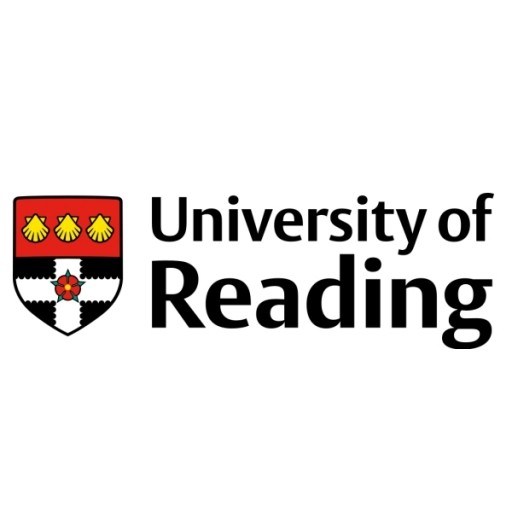Photos of university / #uniofreading
Plant Diversity at the University of Reading is a comprehensive undergraduate program designed to provide students with in-depth knowledge and practical skills in the identification, classification, and conservation of plant species worldwide. This course explores the vast diversity of plant life, from common garden plants to rare and exotic species, emphasizing the ecological, evolutionary, and environmental significance of plants in maintaining healthy ecosystems. Students will engage with a wide range of topics, including plant taxonomy, systematics, anatomy, physiology, and the role of plants in climate change mitigation and sustainable development. The program combines theoretical lectures with hands-on laboratory sessions and fieldwork, allowing students to develop essential skills in plant identification, research methodologies, and data analysis. Throughout the course, students are encouraged to develop a deep appreciation for plant biodiversity and conservation challenges facing global ecosystems. The curriculum also promotes an understanding of the impact of human activities on plant diversity and explores strategies for sustainable management and preservation of plant species. Students will have access to state-of-the-art facilities, including ecological gardens and herbariums, and will benefit from expert guidance by leading academics in the fields of botany and ecology. The program prepares graduates for careers in research, conservation, environmental consultancy, or further postgraduate studies. Emphasis is placed on developing critical thinking, scientific communication skills, and an understanding of the importance of plant diversity in addressing global environmental issues. With a strong focus on practical experience and research awareness, students leaving this program will be well-equipped to contribute effectively to the global effort to understand and protect plant diversity for future generations.
Modules include:
- Diversity and Identification of Plants
- Vegetation Survey and Assessment
- Global Biodiversity and Conservation
- Molecular Systematics
- GIS for Wildlife Managers
Requirements
- IELTS: 6.5 overall with no element less than 5.5 (or equivalent).
- You are normally required to have a good undergraduate honours degree in botany, biology or environmental science (or equivalent from a university outside the UK). If you have other qualifications and a number of years' relevant work experience then you may also be eligible to apply.
The Plant Diversity degree programme at the University of Reading offers a comprehensive overview of financial aspects related to study funding and associated costs. Students enrolling in this programme can access a variety of funding opportunities, including government support, scholarships, bursaries, and student loans. The UK government provides loans to eligible students to cover tuition fees and living expenses, which can be repaid after graduation based on income thresholds. The university also offers scholarship schemes specifically aimed at students pursuing degrees in biological sciences, including Plant Diversity, based on academic merit and financial need. Additionally, international students may seek funding from external organizations, sponsors, or government scholarships applicable to their home country. Tuition fees vary depending on residency status, with UK students benefiting from lower rates compared to international students. The university is committed to transparent communication regarding the costs involved, including tuition, accommodation, books, field trips, and other study-related expenses. Students are encouraged to plan their finances carefully and explore all available funding options early in the application process. The university’s financial support services provide guidance on managing study costs, applying for financial aid, and budgeting for the duration of the programme. Moreover, part-time work opportunities on campus are available for students seeking additional income, subject to visa regulations for international students. The overall financial commitment involved in studying Plant Diversity at the University of Reading is designed to be manageable through careful planning and utilization of available funding channels, ensuring that students can focus on their academic and research pursuits without undue financial stress.
Plant Diversity at the University of Reading offers an in-depth exploration of the vast variety of plant life on Earth, emphasizing taxonomy, evolution, ecology, and conservation. This program is designed for students interested in understanding the diversity of plant species, their adaptations, roles in ecosystems, and how human activities impact plant populations worldwide. The curriculum incorporates a combination of theoretical knowledge and practical skills, including fieldwork, laboratory analysis, and data interpretation. Students will study plant classification systems, morphological and genetic variation, and the ecological significance of plant communities. Emphasis is placed on current issues such as biodiversity loss, climate change, and sustainable conservation strategies. The program also covers the use of modern technological tools like molecular techniques and geographic information systems (GIS) in plant research. Academic staff are actively engaged in research projects, providing students with opportunities to participate in cutting-edge studies relevant to plant conservation and ecological management. Facilities include well-equipped laboratories, botanical gardens, and extensive field sites that support experiential learning. Graduates of the program are well-prepared for careers in ecological consultancy, conservation organizations, botanical research, environmental policy, and further postgraduate study. The program fosters critical thinking, research skills, and a deep appreciation for plant diversity, equipping students with the expertise needed to contribute effectively to the understanding and preservation of plant life across the globe.

